
The world’s oldest woman, who lived to 117, ate the same meal every day throughout her life
Born on November 29, 1899, in northern Italy, Emma Martina Luigia Morano lived through an astonishing stretch of history, from the dawn of the 20th century to the digital age. By the time she passed away in 2017, she was recognized as the world’s oldest living woman and one of the few people ever verified to have reached the age of 117. She spent her entire life in Italy, and her incredible journey inspired people across the globe to uncover the secret to her unmatched longevity.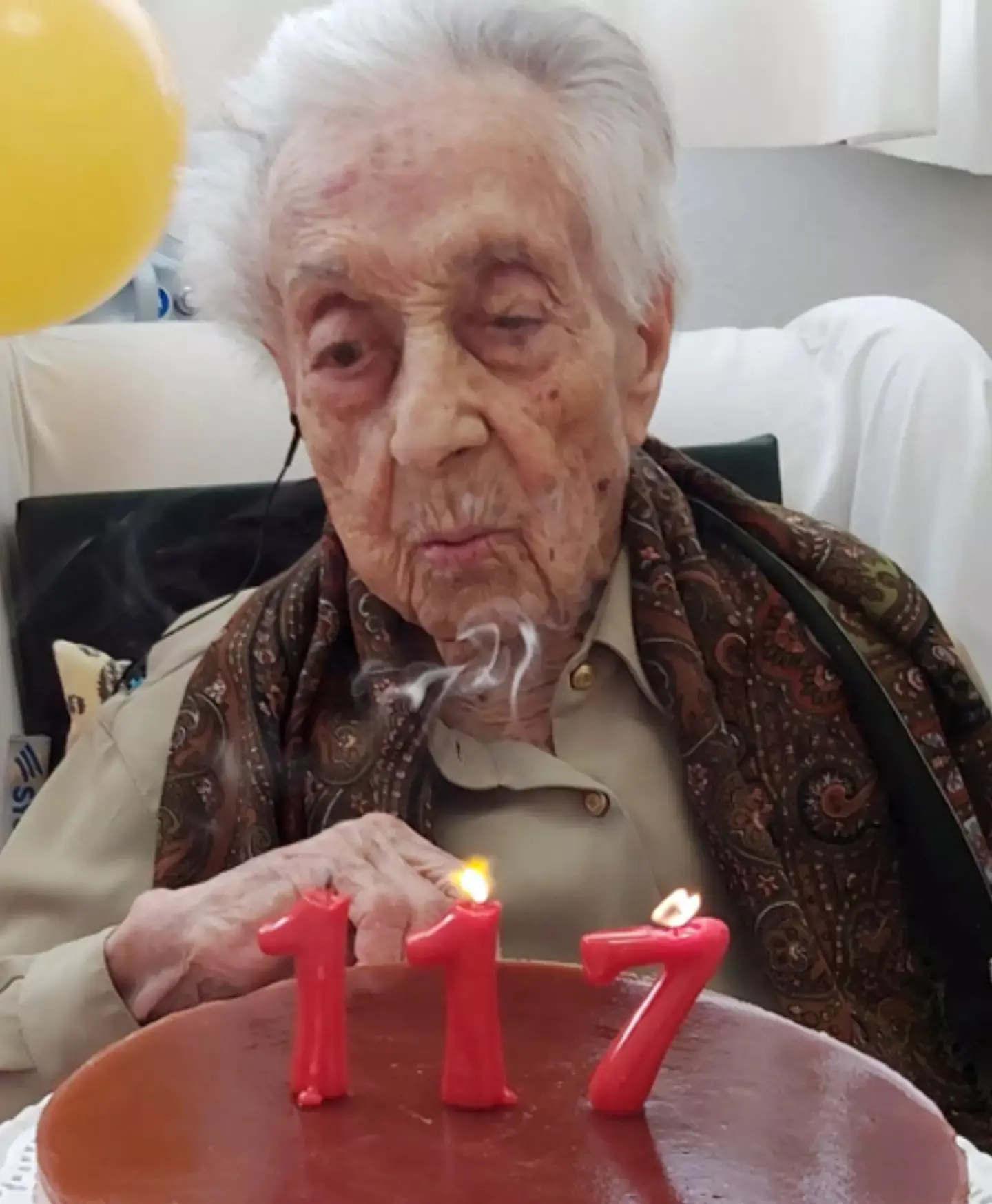
Morano was the eldest of eight siblings—and the only one to see the dawn of a new millennium. While only 12 other people in recorded history have reached her age, her own family history hinted at strong longevity genes; her mother lived to 91, and several of her siblings became centenarians.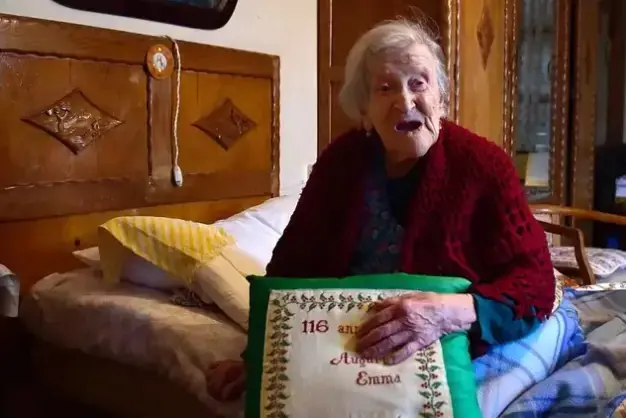
When asked how she had managed to live so long, Morano often credited her stubborn independence and an unusual dietary routine. After being diagnosed with anemia shortly after World War I, her doctor recommended a diet high in protein, which led her to start eating three eggs every single day—two raw in the morning and one cooked as an omelette for lunch. She followed this habit for decades. In her later years, she cut back to two eggs and a couple of biscuits a day, sometimes adding chicken for dinner.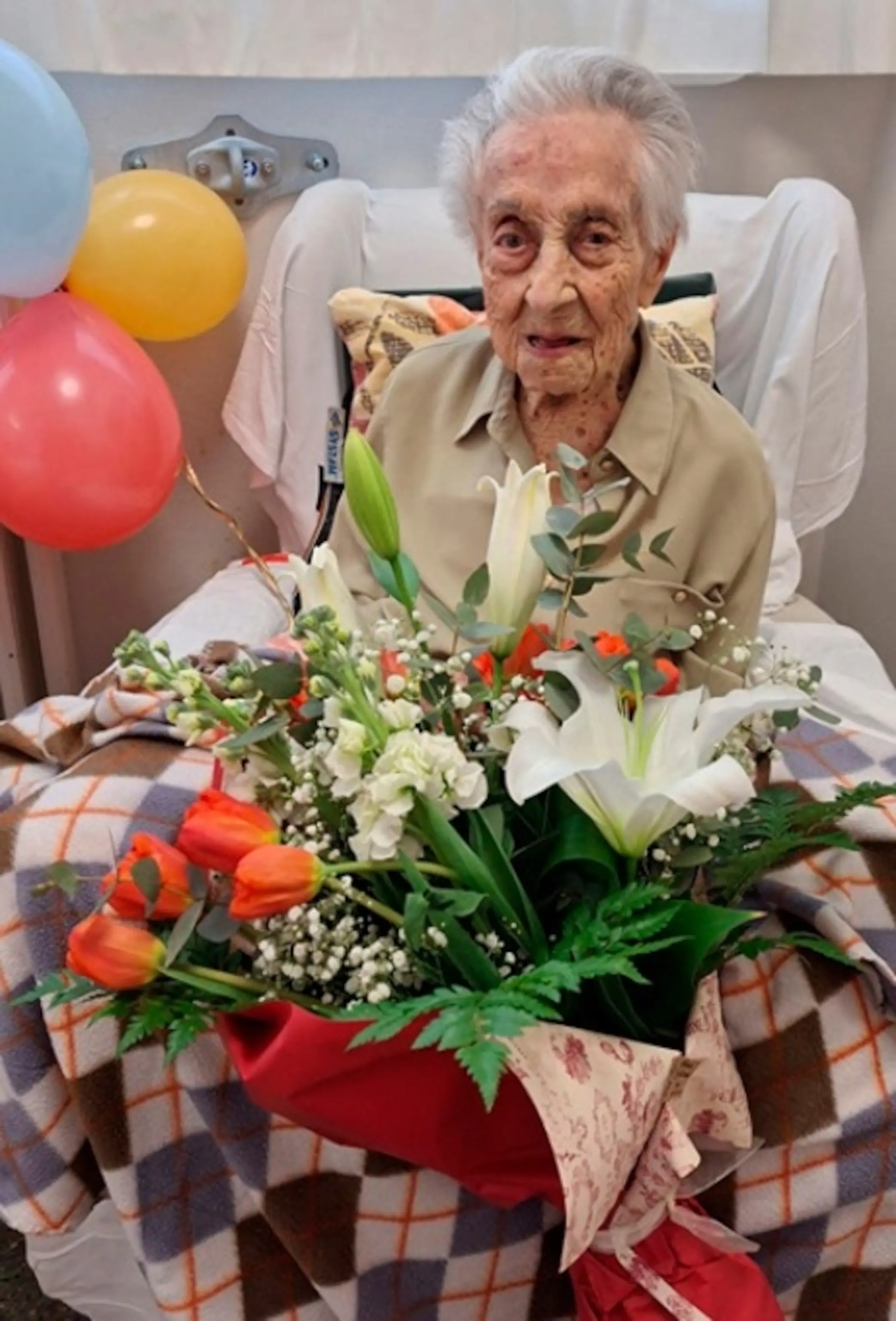
Her longtime physician, Dr. Carlo Bava, who treated her for 27 years, recalled: “When I met her, she ate three eggs per day—two raw in the morning and then an omelette at noon, with chicken at dinner. She barely touched fruits or vegetables.”
But Morano’s diet was not limited to eggs. According to the Mirror, she also enjoyed a daily sip of grappa, a traditional Italian liquor infused with herbs like sage and rue, sometimes accompanied by grapes—a small indulgence she believed kept her spirits high.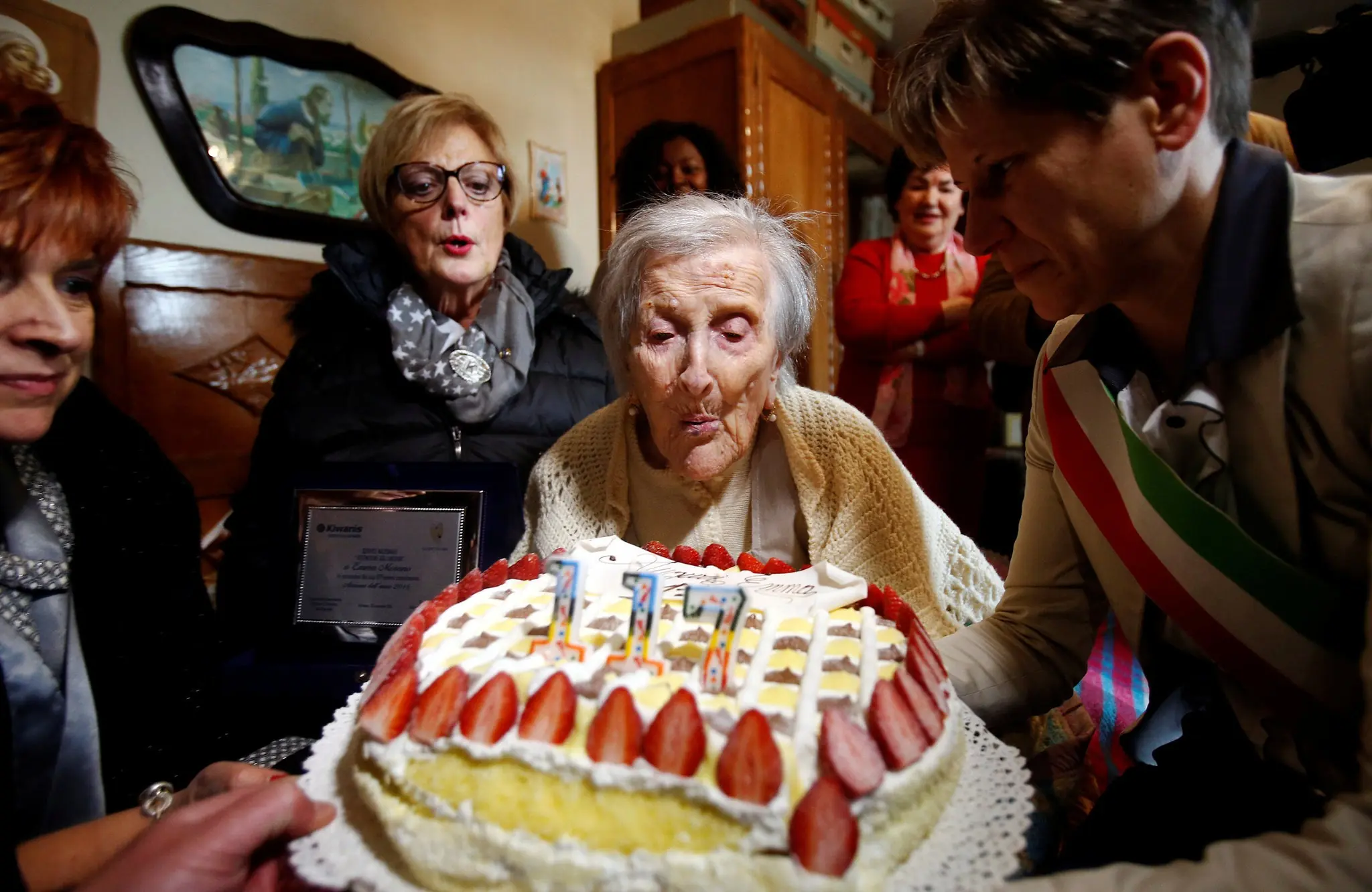
Her long life was also marked by resilience in the face of hardship. She endured an abusive marriage, the loss of her only child, and the turbulence of living through two World Wars and over 90 different Italian governments. In 1938, she made a bold decision for her time: she separated from her husband and lived alone for the rest of her life. “I didn’t want to be dominated by anyone,” she told the New York Times. Despite remaining legally married until his death in 1978, she never remarried.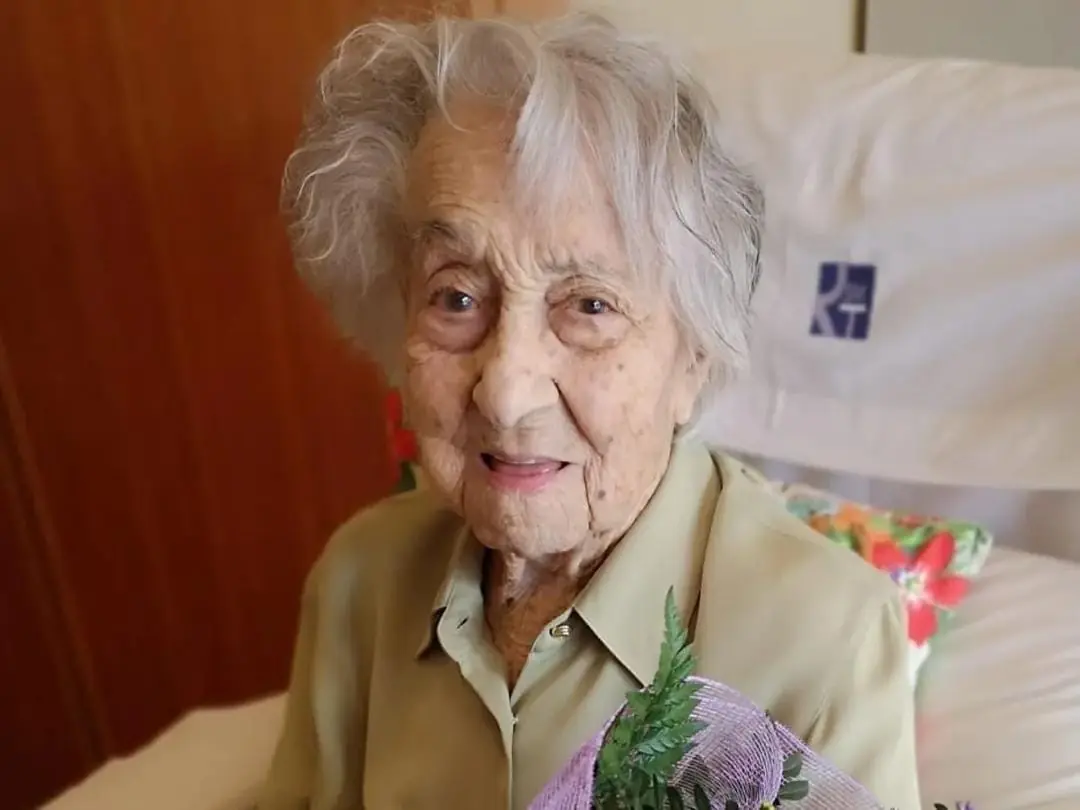
Morano’s extraordinary life was not just about diet and genetics—it was about determination, independence, and a refusal to be broken by life’s challenges. Her story remains a powerful reminder that longevity can be influenced by both what’s on your plate and what’s in your spirit.
News in the same category


The Truth About Eating the Black Vein in Shrimp Tails

This is why you should keep the bathroom light on when sleeping in a hotel
Leaving your hotel bathroom light on at night might seem unnecessary, but it could be a small habit that makes a big difference for your comfort and safety. From preventing nighttime accidents to deterring intruders, experts say this simple tip can protec

The Mystical Gaboon Viper, Master Of Disguise And Deadly Accuracy

If You See Square Waves Forming In The Ocean, Get Out Of The Water Immediately

A Greenland Shark Born in 1620 is Still Alive Four Centuries Later

15 Things You Should Never Plug Into A Power Strip

China is Developing a Levitating Train That Could Travel From New York to Chicago in Just Two Hours

TikTok’s ‘Vabbing’ Trend Sparks Debate: Does It Attract Partners?

In Sweden, You’re Not Allowed to Leave Your Dog Alone for More Than Six Hours, Here’s the Reason

A A tendon raises up when you touch your pinky to your thumbraises up when you touch your pinky to your thumb

The Hidden Meaning Behind Leg-crossing — It’s More Than Just Comfort

The Sh0cking Truth Behind Your Ankle Bracelet And What It Reveals About You — It’s More Than Just Jewelry
For many, an ankle bracelet is just a delicate, eye-catching piece of jewelry. But behind its shimmer lies a rich tapestry of history, tradition, and hidden symbolism that stretches across cultures and centuries.

Lost Underwater City Near Noah’s Ark Site Could Rewrite Biblical History Forever
The discovery of an underwater city found by the 'resting place of Noah's Ark' is a revelation that may lead to the Bible story being re-written.

11 Heartbreaking Yet Essential Signs Your Dog May Be Nearing the End — And How to Give Them Comfort Until the Last Moment
When you notice these signs, your role transforms from caregiver to emotional anchor. This is the time to be fully present — offering touch, reassurance, and unconditional love.

Harvard Professor Warns: Object Heading Toward Earth Could Be Something Beyond Nature
A massive interstellar object, 3I/ATLAS, is racing toward Earth, and one Harvard astrophysicist believes it may not be natural. With missing comet features and a suspicious trajectory, experts are now debating whether it could be an engineered spacecraft.

Mass Panic as ‘New Baba Vanga’ Predicts Majo Disasters Striking in Just One Month
A chilling prophecy from Japan’s so-called “New Baba Vanga” has triggered widespread fear and mass trip cancellations. Tourists are now abandoning travel plans as the forecast warns of a catastrophic natural disaster hitting in early July 2025.

What Is SPAM Meat? History, Origin, Ingredients, and How It Became a Global Food Icon
SPAM — the world-famous canned meat — has been sold over 8 billion times and is loved in more than 40 countries. From its humble beginnings during the Great Depression to its role in World War II, here’s the complete story of SPAM’s origin, ingred

Scientists Reverse Aging of a 53-Year-Old’s Skin Cells to That of a 23
News Post

10 Symptoms That May Reveal Health Problems

Experts warn: Don’t swap your oven for an air fryer

Get Rid of Throat Mucus Faster With These Home Treatments (Evidence Based)

Clear Throat Mucus Fast With These Tried-and-Tested Remedies They Don’t Want You to Know

9 Warning Signs of Magnesium Deficiency You Shouldn't Ignore

Poor Postcancer Surgery Outcomes Tied to 3 Factors

Teamwork Boosts Primary Care Doc Job Satisfaction, Cuts Stress

HIV Was Successfully Eliminated from Human Immune Cells Using CRISPR Gene Editing in Landmark Study

Scientists Discover An “Off Switch” For Cholesterol—And It Could Save Millions Of Lives

How to Treat Urinary Tract Infection (UTI) Naturally According to Science

4 Common Causes of Body Pain on the Right Side

The Truth About Eating the Black Vein in Shrimp Tails

12 Subtle Vitamin D Deficiency Symptoms That Most People Ignore

What Your Heart Experiences When You Drink Energy Drinks

How to Eat Right for Your Blood Type

Eyes Full of Hope, Heart Full of Trust.
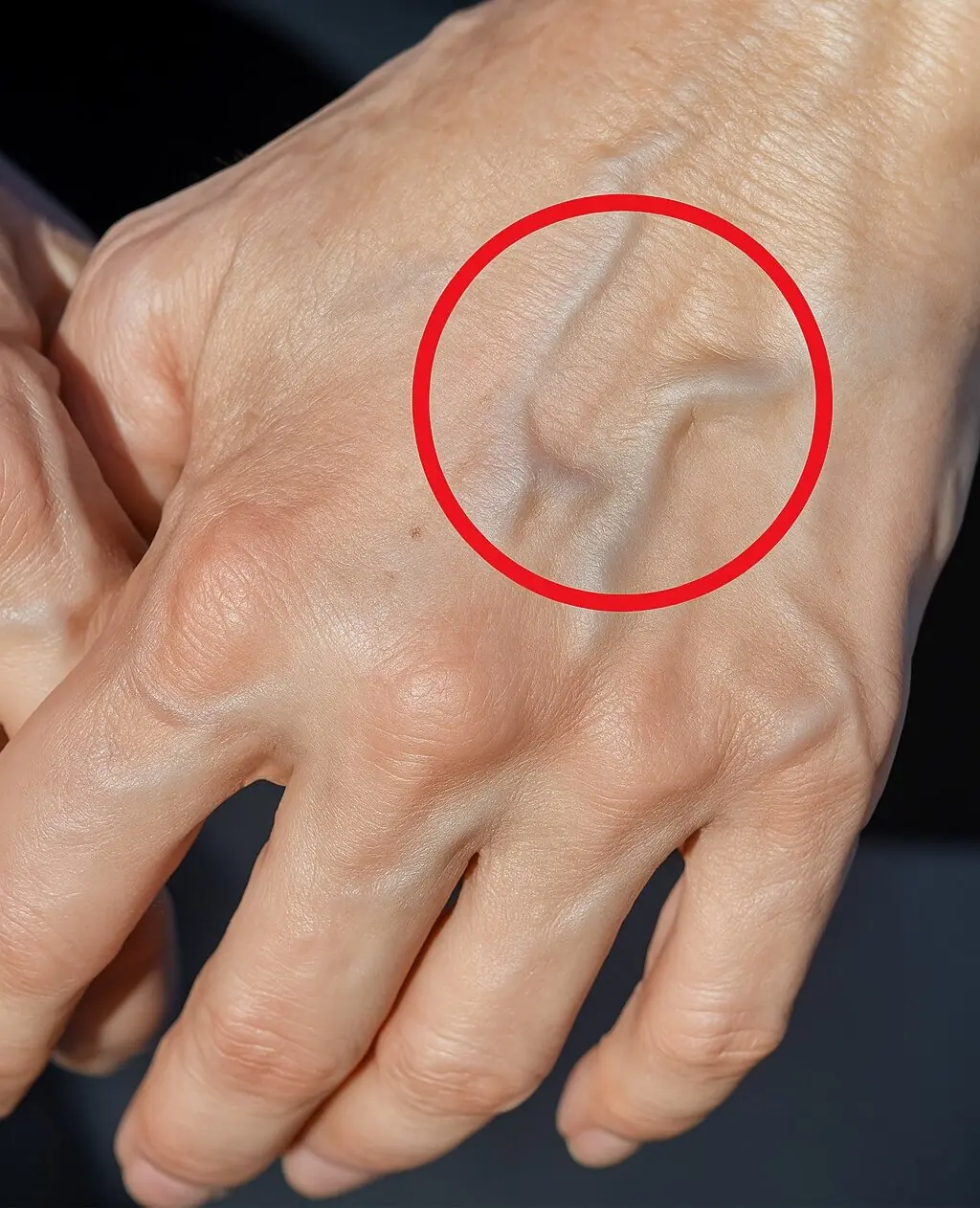
When to Worry About Veins That Appear Out of Nowhere

This is what sleeping on the left side does for our brain, stomach & glymphatic health
Sleeping position might be the last thing you think about before bed, but it can have a powerful impact on your health. Experts say that lying on your left side could improve digestion, support brain detox, ease back pain, and even enhance circulation.

I Haven’t Seen My Daughter in 13 Years — Then a Letter Arrived from a Grandson I Never Knew

This is why you should keep the bathroom light on when sleeping in a hotel
Leaving your hotel bathroom light on at night might seem unnecessary, but it could be a small habit that makes a big difference for your comfort and safety. From preventing nighttime accidents to deterring intruders, experts say this simple tip can protec